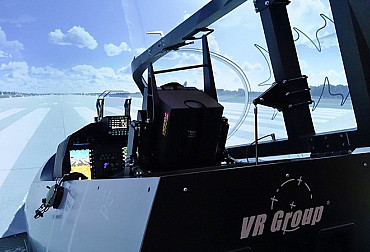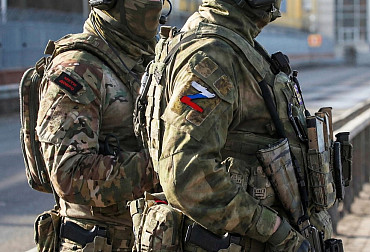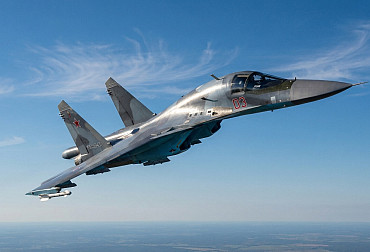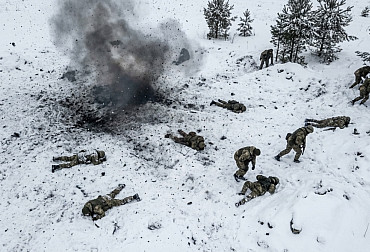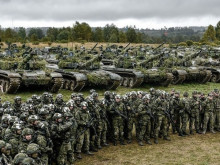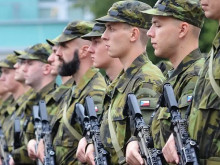In Kosovo, where the situation is again becoming more tense, the Military Police have been deployed
At the beginning of the year, Czech Military Police units were deployed in Pristina as part of the international mission in Kosovo, which aims to stabilise the situation after the escalation of the unrest with Serbia and to strengthen the overall security situation in Kosovo. The replacement comes after at least a partial calming of the reignited conflict over Kosovo licence plates. Fuel is now being added to the fire by ethnic Serbs in northern Kosovo, where petitions are underway in several towns to recall Albanian mayors. Serbian President Aleksandar Vucic is equally agitated, with a new accusation that the Kosovo authorities do not want to pay pensions and wages to Serbs in Kosovo.
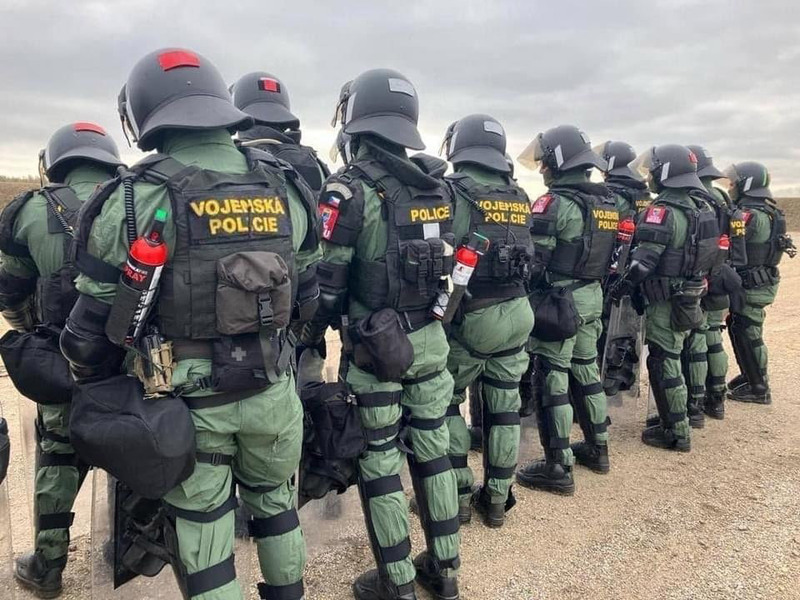
Turbulent times in the world of conflict and war are making themselves known again in the Balkans, when two people were injured after a hand grenade was thrown at a group of ethnic Serbs coming out of a bar in the predominantly Serb town of Severni Mitrovica in northern Kosovo. And while authorities are trying to calm the situation by saying they have no information yet on a motive based on ethnic disputes, there have been repeated detonations of various types of explosives in the past in the town as part of ethnic disputes. In addition, these days, a petition is underway in Kosovo's northernmost town of Leposavic and other municipalities to recall the Albanian mayors there.
This is because Serbs boycotted local elections last year and ended up logically with Albanian representatives often from the Kosovo-Albanian ruling party of Prime Minister Albin Kurti Vetëvendosje, which translates into English as Self-determination. Now the Serbs want to change that by an official vote, which requires at least 20 percent of the vote, which in Severna Mitrovica, for example, means a vote of at least 3,500 residents.
"They can collect signatures. We have no problem with that. It was the government that allowed it," the current Albanian mayor of Leposavic, Lulzim Hetemi, told Balkan Insight. Hetemi knows about the explosive mood in the area. He had to be escorted by a large police guard when he took office as a crowd of Serbs gathered around the town hall.
In the ensuing protest, it was NATO peacekeepers in the KFOR mission in Kosovo who had to be deployed to secure the area around the town hall and take over security throughout the city. Hetemi was unsure if he would be able to return home safely after leaving the building, spending days and nights at a time working at the town hall. The situation in the town has at least partially calmed down thanks to the presence of specialised KFOR troops. "I think it was worth it. You can see the difference. Sovereignty has been restored throughout Kosovo and also in Leposavić," Hetemi told Balkan Insight, adding that although he now goes home from his office regularly, he does not intend to run for office again.
Military police officers between two poles
Missions by Czech military police officers began in response to the larger escalation between the two countries as early as 2022. At the beginning of this year, the 1st Military Police Unit ended its operations and was replaced by the 2nd Unit, which is mostly made up of members of the Military Police Headquarters in Tábor. As part of the international specialised KFOR unit (MSU KFOR), Czech military police officers are also cooperating with the Italian police on the ground in an effort to maintain the fragile status quo.
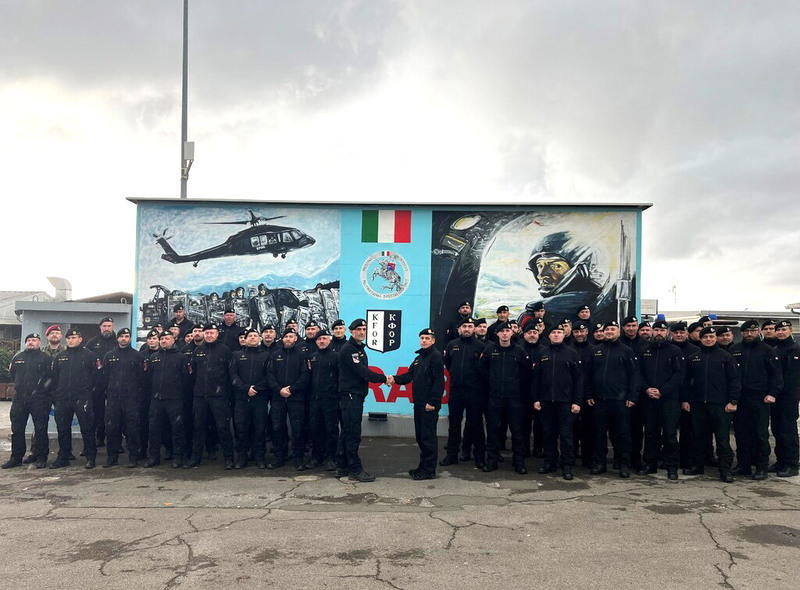
"Our goal is to successfully build on the work of the 1st MP KFOR unit. To continue to develop excellent cooperation with our Italian colleagues and to be a full-fledged part of the MSU unit, which has warmly welcomed us here," said Colonel Konstantin Kasík, commander of the 2nd unit. "In the next six months we will develop our crowd management skills and capabilities here during joint training and exercises with other units within KFOR," Colonel Kasik added, adding that the unit will provide base security and conduct reconnaissance as part of the monitoring of the situation.
In addition to the dedicated MSU unit, there are also two military police officers with service dogs operating in Kosovo as part of the Multinational Military Police structure under the direct command of KFOR Force Provost Marshal.
It is the military police who can play a pivotal role in the event of a sudden escalation of the situation, whether by ethnic Serbs or Albanians, when they can prevent open clashes between rival communities and generally contribute to ensuring security in the areas of operation in cooperation with the local police, at a time when the old conflict is being reignited in the north of the country.
This was most recently made known on a wider scale by the blocking of the Serbian border to cars with Kosovo licence plates due to the Serbian government's ban on such vehicles. As of this New Year, this regulation has ceased to apply, a move welcomed by the European Union as part of its efforts to engage in dialogue. "This decision is a positive step in the implementation of the Agreement on the Road to a Settlement of Relations, as well as past commitments under the Freedom of Movement Dialogue," said EU foreign policy chief Josep Borrell on the subject.
However, in addition to the petition to remove the mayors, there is another conflict at a higher level, again from the Serbian side. President Aleksandar Vucic, during the recent World Economic Forum meeting in Davos, accused Kosovo Prime Minister Kurti of trying to sabotage the talks. According to Vucic, Kosovo plans not to pay ethnic Serbs part of their pensions and salaries, even though the government in Pristina has not announced any such plans. "I warned them and asked for help (EU negotiating teams) to stop Kurti's attempt to destroy the dialogue because he wants to prevent the payment of salaries and pensions for our people in the health and education sectors, which would mean not a silent but a loud departure of Serbs from Kosovo and Metochia," Vučić told reporters in Davos.
Ethnic Serbs, who do not recognise the Kosovo government or Kosovo's state institutions, make up about 5 percent of Kosovo's 1.8 million population. In contrast, ethnic Albanians make up about 90 percent of the population. Serbs often vent their hostility by, for example, refusing to pay Kosovo's energy operator for electricity and frequently attacking police when they try to intervene.
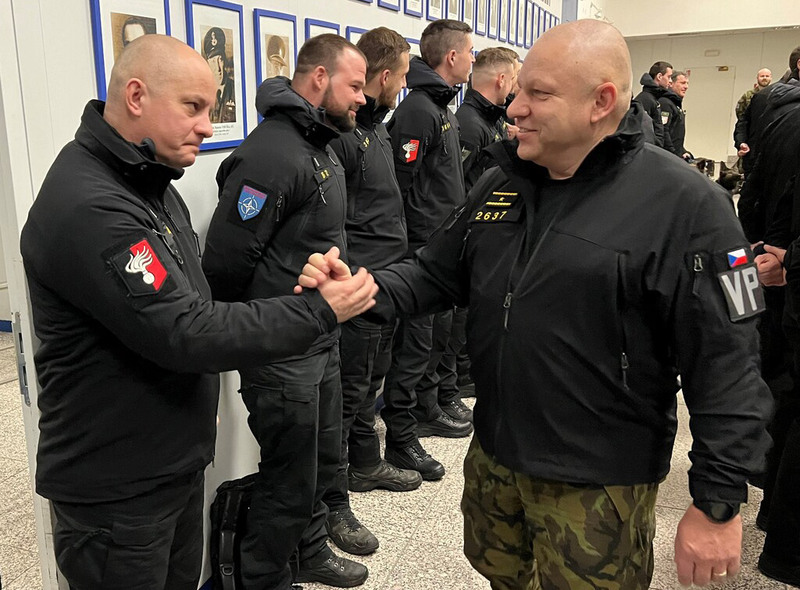
We wish the 2nd Military Police Unit, just as Brigadier General Jiří Roček, Chief of the Military Police, wished them well in their operational task.











